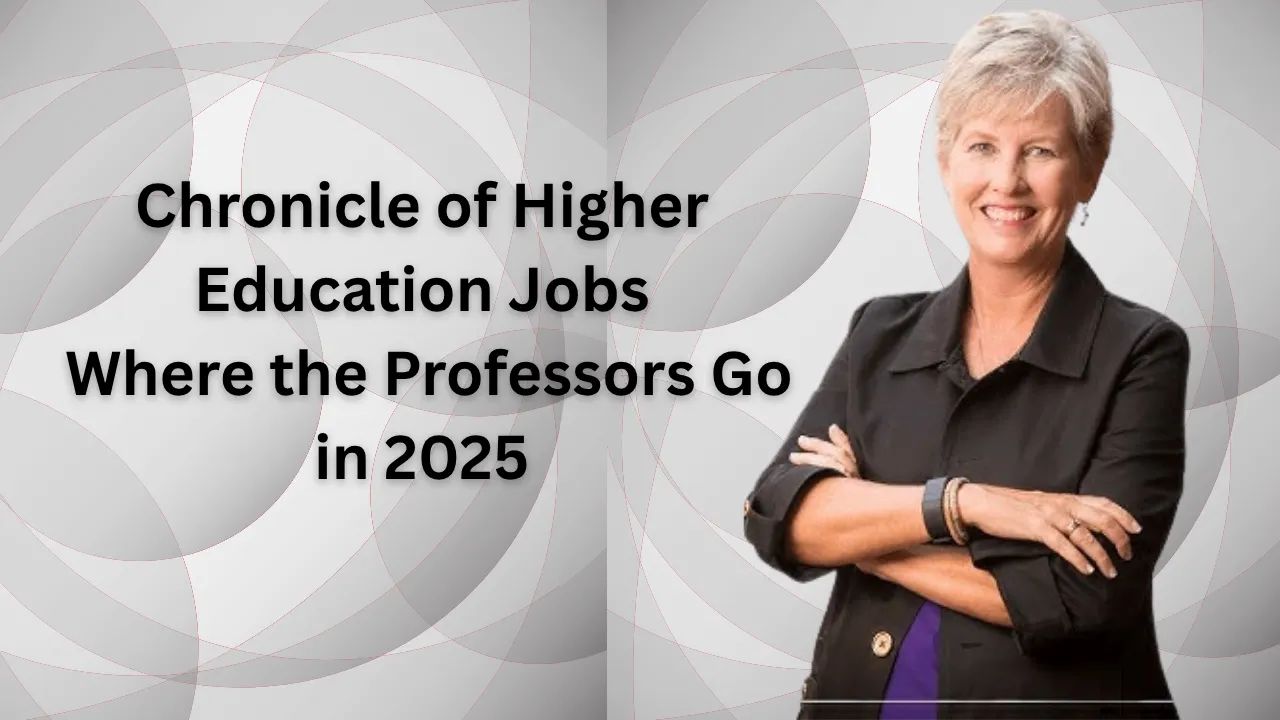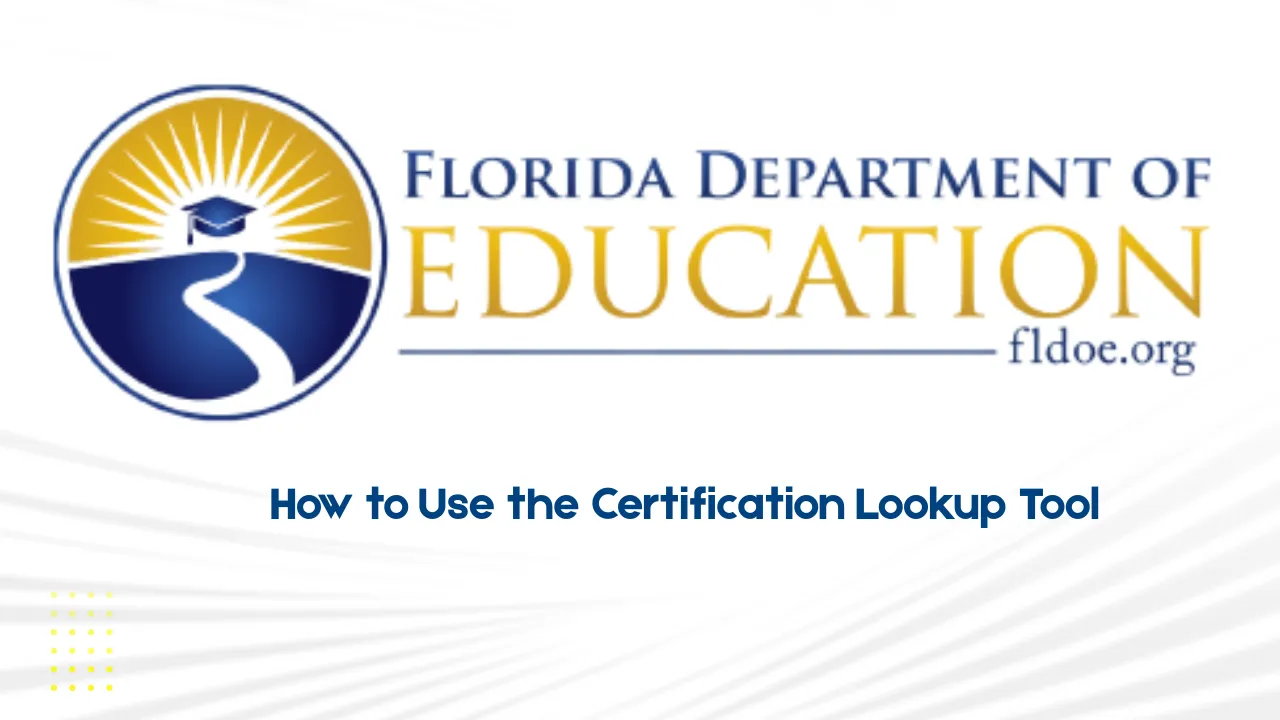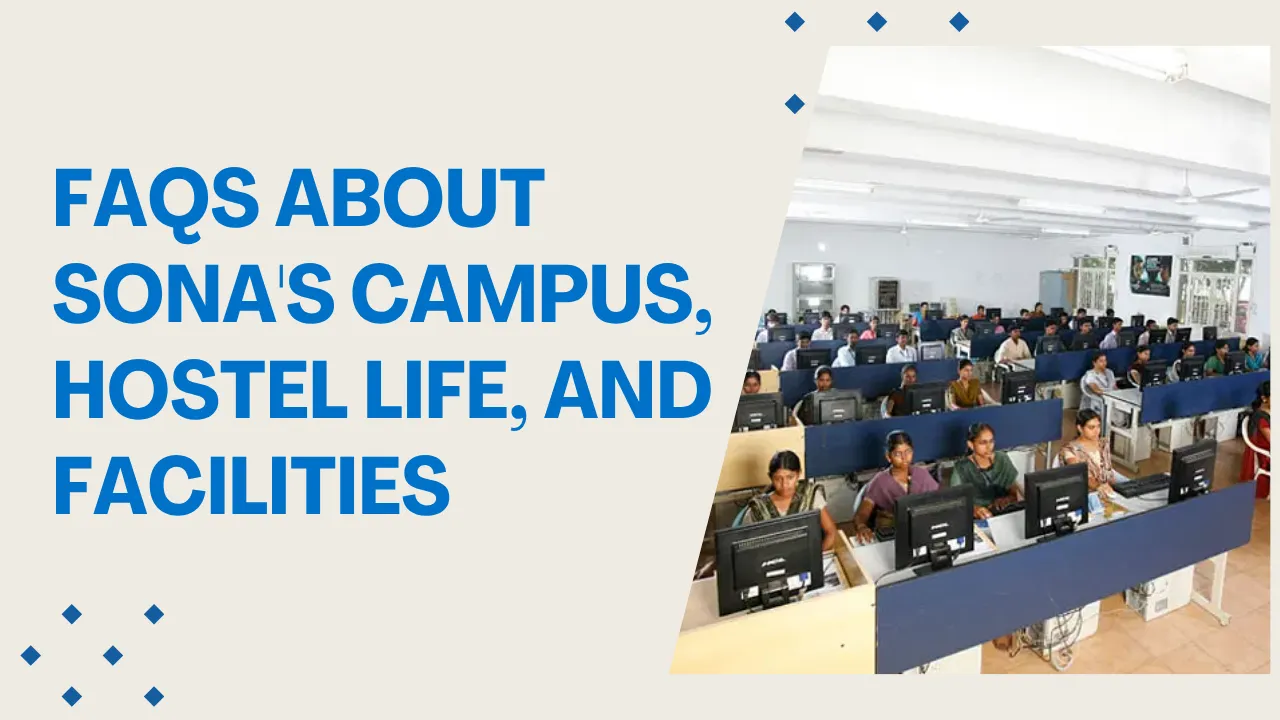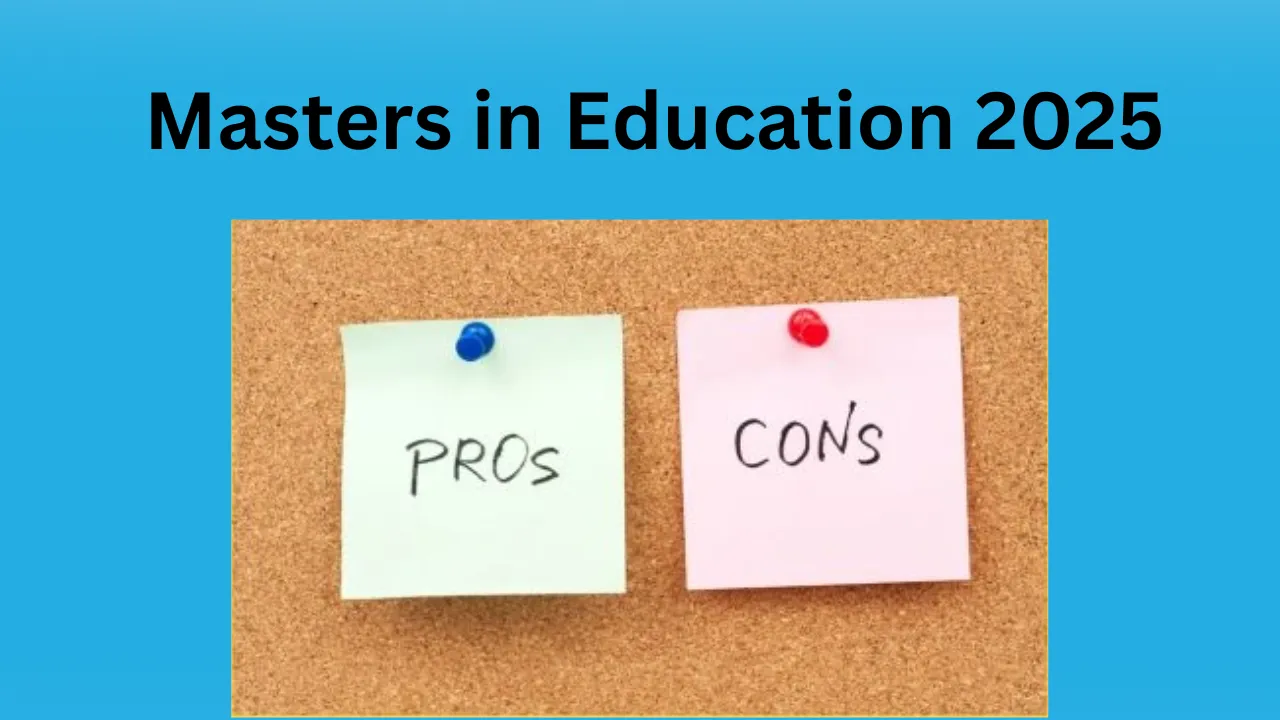Chronicle of Higher Education Jobs: Higher Education Jobs in 2025 are transforming at a remarkable pace, driven by evolving student expectations, emerging technologies, and a shifting global landscape. Professors now face a diverse range of opportunities, from traditional on‑campus posts to hybrid roles and digital learning platforms. As institutions recalibrate their strategies, those who adapt to new teaching models, embrace practical instruction, and bring real-world experience will thrive.
This article explores the changing tapestry of Higher Education Jobs, spotlighting trends in experiential learning, AI integration, global recruitment, and flexible employment models. You’ll discover where faculty roles are headed, why institutions value applied expertise, and how you can position yourself as an in-demand academic professional in the evolving job market.
Chronicle of Higher Education Jobs: Where the Professors Go in 2025
Higher Education Jobs in 2025 are no longer confined to the traditional classroom. Professors today are navigating a diverse academic landscape shaped by technology, global trends, and the demand for practical learning. As universities shift toward skill-based education and career-aligned programs, the need for adaptive, tech-savvy educators has never been greater. Institutions are actively seeking faculty who can bring real-world experience, integrate AI into their teaching, and foster student success beyond exams. Whether it’s through virtual platforms, international opportunities, or hybrid models, Higher Education Jobs now offer flexible, forward-thinking paths for professors ready to lead the future of learning.
Higher Education Jobs Overview Table
| Key Trend | What it Means for Faculty |
| Skills-Based Curriculum | Demand for professors who design practical labs, bootcamps, and certification-ready modules. |
| Experiential Learning | Roles that connect classroom instruction with internships and industry partnerships. |
| AI & EdTech Integration | Teaching opportunities requiring knowledge of adaptive learning systems and educational software. |
| Career-Aligned Programs | Faculty with industry links (IT, healthcare, finance) are highly sought after. |
| Holistic Well-Being Models | Positions in emotional intelligence instruction, coaching, or student support services. |
| Global Competence & Recruitment | Need for cross-cultural educators and faculty open to international placements. |
| Adjunct/Non-Tenured Track Positions | Continued demand for flexible, part-time instructors. |
| Hybrid & Virtual Work | Roles that split teaching between online and in-person settings. |
Skills-Based Education and Experiential Learning
In the world of Higher Education Jobs, professors are increasingly expected to bring practical knowledge into the classroom. Institutions now favor educators who can develop hands-on labs, industry-linked projects, and short certificate programs. With students and employers seeking measurable achievements, teaching formats often resemble bootcamp modules or capstone courses. This trend is especially prominent in sectors like software development, healthcare technologies, and data science, where real-world experience enhances academic credibility.
Experiential learning has become a core component of many degree plans. Professors who can forge and manage internship or co-op partnerships with industry are more likely to be hired. These relationships elevate student learning and graduate employability. As universities partner more closely with businesses, faculty who can serve as connectors between academic theory and workplace practice will stand out in the competitive hiring landscape.
Integration of Technology and AI
The rise of AI in higher education has reshaped the faculty hiring landscape. Institutions are investing in educational platforms that use predictive analytics, adaptive learning, and intelligent tutoring systems. For professors, this means a growing requirement to understand and integrate these tools into everyday teaching. Knowledge of learning management systems (LMS), digital assessment tools, and virtual classrooms is now essential.
Furthermore, the need for edtech-savvy educators means faculty positions are increasingly advertised with requirements for tech fluency. Whether it’s designing AI-driven lesson plans or interpreting learning data, professors who adopt and innovate with technology bring added value. This shift also supports online and hybrid learning models, making teaching more flexible and personalized.
Career-Aligned Programs & Holistic Education Models
A major focus in Higher Education Jobs today is career alignment. Parents and students want tangible returns on tuition investments. Universities respond by creating programs tied to in-demand industries such as cybersecurity, nursing, finance, and supply chain management. Professors with firsthand industry experience and applied research backgrounds are especially in demand to lead these initiatives and ensure curriculum relevance.
At the same time, holistic education models are gaining traction. Emotional intelligence (EI), mental health awareness, and personality development are increasingly part of the higher education package—especially post-pandemic. Faculty roles now include student mentors, life coaches, and well-being consultants. Universities are looking for educators with training or certification in counseling, coaching, or psychosocial support to complement academic instruction.
Global Competence & International Recruitment
In 2025, universities want faculty who can teach global citizens. An emphasis on cross-cultural communication, foreign language instruction, and study abroad programming drives demand for professors skilled in international learning. With campuses expanding globally, institutions are hiring educators to deliver diverse, culturally informed coursework.
Simultaneously, international recruitment surges in regions like India, the UAE, and Europe. Universities tout competitive packages, visa support, and research infrastructure to attract foreign faculty. For professors open to relocating, these roles offer new teaching environments and global collaboration opportunities.
Adjunct Roles, Hybrid Models, and Flexible Positions
The academic world continues relying heavily on adjunct and non-tenure-track positions. In June 2025 alone, over 18,500 faculty roles were listed, with a major chunk being contingent appointments. These positions provide flexibility and can fit well around professional or parental responsibilities—but often lack tenure protection, consistent benefits, and long-term stability.
Hybrid teaching models—combining online and on-site engagement—are also on the rise. These roles appeal to faculty seeking a better work-life balance. Additionally, hiring processes increasingly include remote interviews and AI-supported candidate screening, which can speed up recruitment and allow professors to apply across regions.
Where Professors Are Heading in 2025
- Applied-Focus Institutions
Universities and colleges that prioritize real-world skill integration—especially community colleges—are aggressively hiring practical and industry-experienced educators. - Tech-Driven Campuses
Universities funding educational technologies, online platforms, and AI systems want faculty who can innovate digitally and improve learning outcomes. - Industry-Tied Programs
Professors with backgrounds in healthcare, IT, finance, or logistics are valued for mirrored academic programs and sector-specific courses. - Global Expansion Campuses
Growth in international hiring is strong in India, the UAE, and Europe. Academics ready to work abroad are welcomed. - Flexible Employment Venues
Adjunct and hybrid roles offer schedule flexibility and attract current job seekers balancing multiple commitments or seeking diverse teaching formats. - Specialized Education Providers
Nontraditional institutions—vocational schools, technical institutes, online education platforms—are now recruiting talent with niche expertise, such as instructional design or learning experience (Lx) roles.
Key Skills and Considerations for Aspiring Faculty
To stand out in the Higher Education Jobs marketplace, consider these priorities:
- Adaptability: Be ready to adopt new teaching technologies, design flexible coursework, and adjust to shifts in enrollment patterns.
- Applied Skills Matter: Alongside your advanced degrees, showcase practical experience through industry projects, consulting, or certifications.
- Networking: Connect actively with both academic peers and industry professionals to stay current with hiring trends.
- Strategic Fit: Understand an institution’s values, funding model, and educational approach to tailor your applications.
- Multicultural Readiness: Experience with international teaching, cross-cultural awareness, and language skills enhance your appeal.
- Well-being Focus: Familiarize yourself with campus efforts around student mental health, coaching, and support systems—these are increasingly valued traits.
🔍 Two In-Demand Roles
- EdTech Innovator: A professor who uses AI, adaptive technology, and digital tools to enhance learning.
- Industry-Embedded Faculty: A lecturer or professor who brings real-world experience in high-demand sectors (tech, healthcare, logistics, finance).
FAQs
1. How have Higher Education Jobs changed in 2025?
Institutions now value practical skills, technology fluency, global teaching ability, and holistic student care—beyond traditional theory-based instruction.
2. Are non-tenure positions secure?
Adjunct and part-time roles offer flexibility but lack long-term benefits and protections compared to tenure-track roles.
3. What technical skills do universities want?
Proficiency with LMS, virtual classroom systems, AI-driven pedagogy, data analytics in education, and blended learning design are essential.
4. What industries drive faculty hiring?
IT, healthcare, finance, supply chain, engineering, and data science are the top industries supporting new academic programs and hiring.
5. Where do international professors find opportunities?
Strong demand arises in India, UAE, and parts of Europe, especially at universities expanding research, online education, or international campuses.
Final Thought
If you’re aiming for success in Higher Education Jobs, adapting to this dynamic environment is key. Whether you’re passionate about AI-enhanced learning, real-world skill development, student well-being, or global education, there’s an academic role waiting for you. Share your insights, ask questions below, or explore our related content to take the next step in your academic career. And don’t forget to explore our horoscope section for a bit of fun guidance as you navigate your professional journey!

















